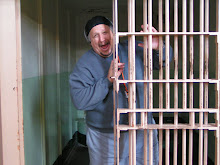The bosses who run the FAA have been mistreating the controllers since at least 1981
By Dick Meister
Few government employees have more important responsibilities than the federal air traffic controllers whose primary job is to protect the safety of the ever-growing number of air travelers. Yet few federal employees are more badly treated by their government bosses.
The bosses, who run the Federal Aviation Administration the FAA have been mistreating the controllers since at least 1981. That's when President Ronald Reagan fired more than 11,500 controllers who, seeking to improve their onerous working conditions, struck in violation of the law that prohibits strikes by federal employees.
It's been downhill ever since for the controllers. The Bush appointees who've been running the FAA for the past eight years have adamantly refused to grant controllers even the basic right to bargain collectively for a contract that would guarantee them decent working conditions.
The controllers' working conditions are so bad that nearly one-fifth of the controllers have quit over the past two years, reducing their number to the lowest level since 1992.
That has left many traffic control towers badly understaffed and has forced the controllers remaining on the job to work long, fatiguing work shifts of up to 10 hours, with fewer and shorter breaks, and little time to rest between shifts -- often for six days a week, sometimes for all seven days. In some locations, control towers have had to be shut down for hours at a time for lack of controllers.
The shortage of experienced controllers to guide commercial and private aircraft is a serious threat to safety the possibility of improperly guided planes smashing into each other in the air or on runways, or going dangerously off course and crashing. Although there have been no such incidents recently, there have been some two-dozen reports of near-misses in the past year. The shortage of controllers is also a main reason that so many commercial flights are late leaving and late arriving.
The controllers are working under a contract, but it's a contract that was imposed on them by the FAA in 2006 after the agency rejected union demands for improvements during negotiations for a new contract.
Rather than improving conditions, the imposed contract made them even worse. It took from controllers their previous right to take rest breaks after every two hours of their eye-straining, highly stressful work of tracking aircraft paths across radar screens. They lost their right to refuse to work overtime, no matter how stressed or fatigued they might be. The contract also set the pay of new hires almost one-third lower than that of veteran controllers.
"The work environment is horrible, there's no respect for people,² says President Patrick Forrey of the controllers' union, the National Air Traffic Controllers Association. Finally, however, air traffic controllers have genuine hopes that their situation might improve substantially, thanks to the election of Barack Obama . The right to negotiate a new contract is what they want -- and need -- above all, and Obama has pledged to try to get it for them.
As a senator in 2006, Obama introduced a bill that was designed to stop the FAA from imposing a contract on the controllers and instead negotiate a new one with them, only to have the bill blocked by Senate Republicans. During his presidential campaign, Obama faulted the FAA for failing to treat controllers "with the respect they deserve."
Obama promises that as president, he'll direct his appointees to the Federal Aviation Administration to do what Bush's appointees refused to do. That is to work with the controllers and their union ³to restore morale and improve working conditions,² in accord with Obama's intent to return to the Clinton-era policy of requiring the FAA and all other federal agencies to work cooperatively with their employees' unions.
That should be and apparently will be a high priority for the Obama administration.
Dick Meister is a San Francisco-based journalist who has covered labor issues for a half-century. Contact him through his website, www.dickmeister.com.
Subscribe to:
Post Comments (Atom)









No comments:
Post a Comment